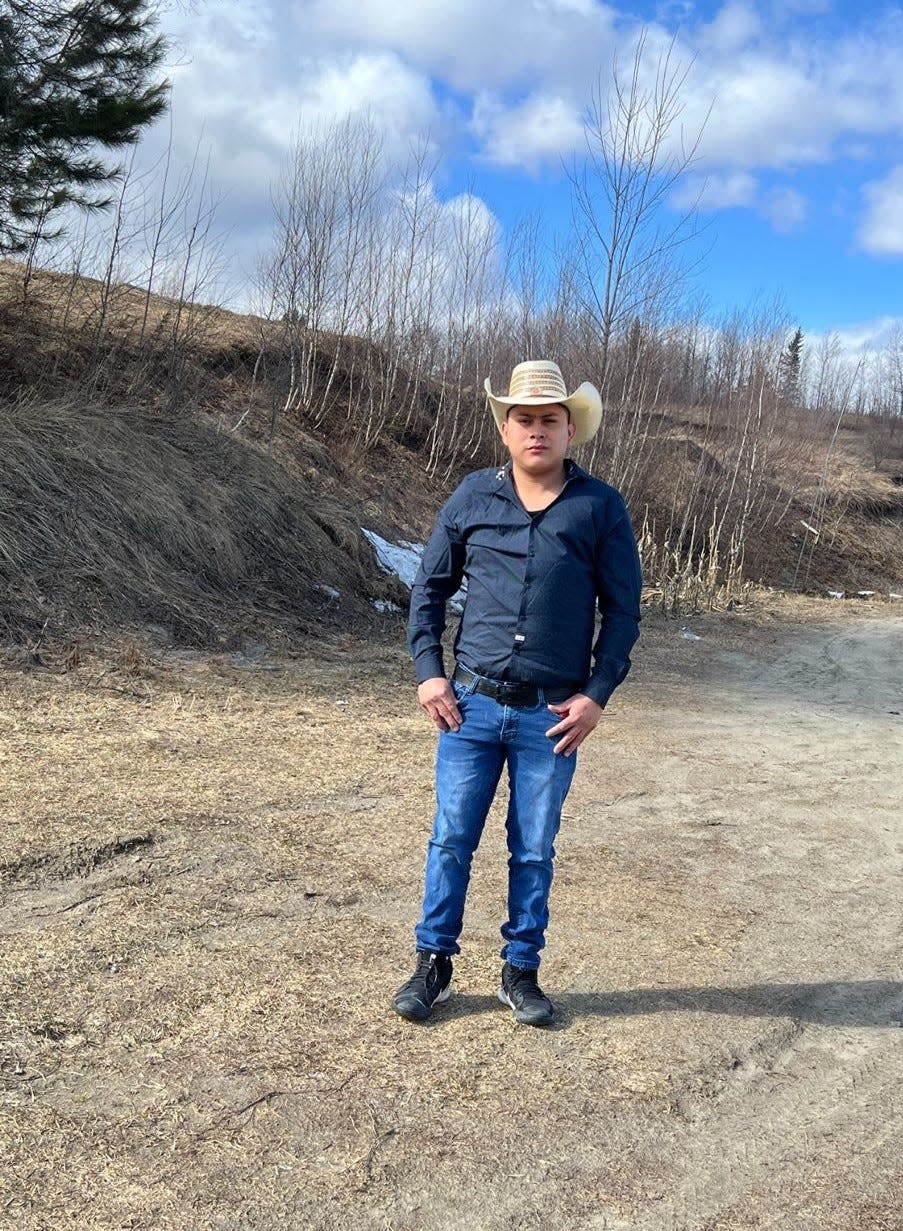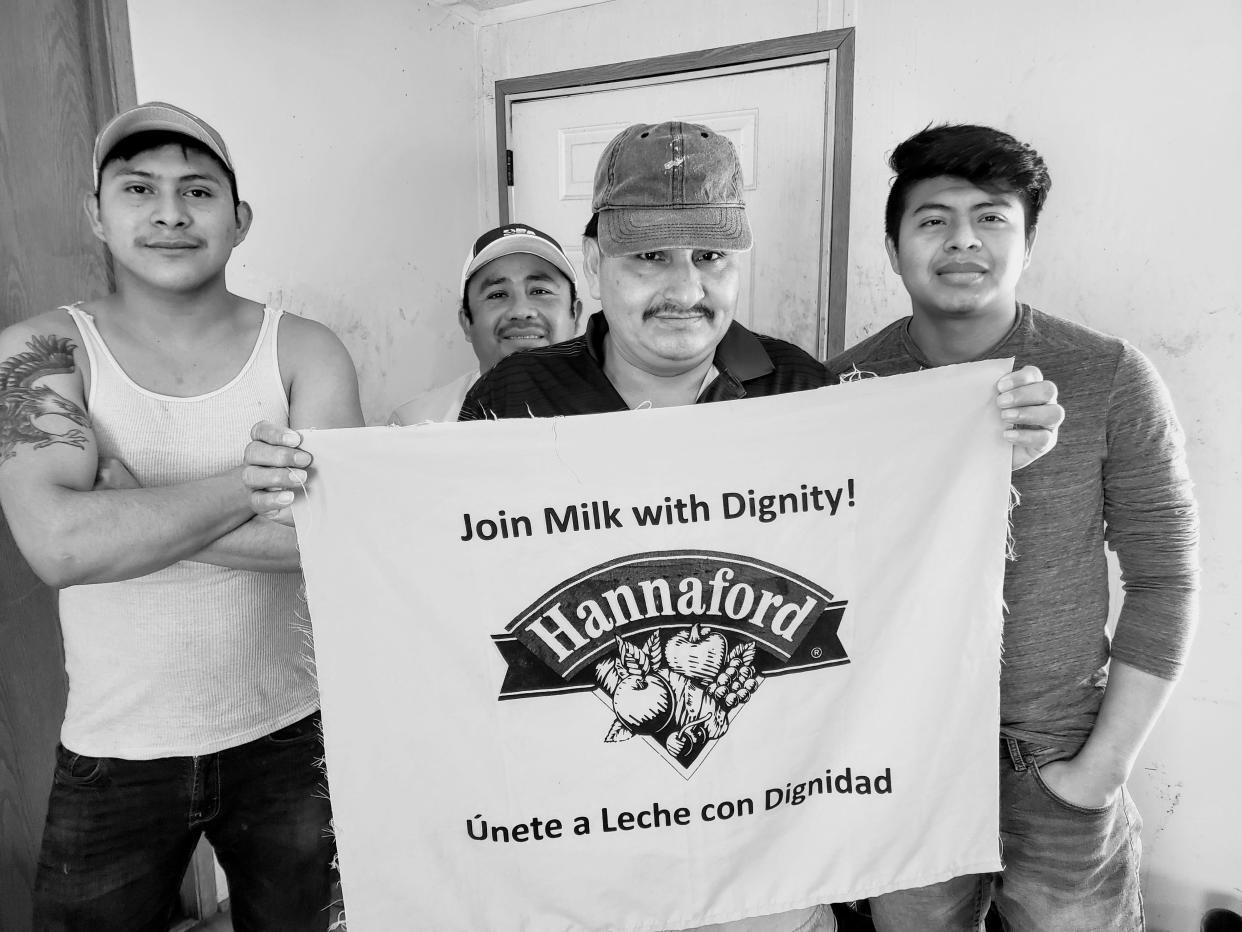Undocumented Vermont farmworker threatened with imminent deportation to Guatemala
Vermont farmworker Bernardino Suchite Canan is on the verge of being deported to Guatemala, where he fears retaliation from criminal elements he testified against in his hometown of Zacapa, according to the attorney who represented Canan last week in Boston Immigration Court.
"Our argument for Bernardino was that he had been subjected to past persecution and had well-founded fears of future persecution on account of his membership in a particular social group," said Brett Stokes, a professor at Vermont Law & Graduate School, who also oversees an immigration clinic for the school in Burlington.
Canan, 24, fled Guatemala seven years ago at the age of 16 for Vermont, where he has worked at a dairy farm in Irasburg ever since, rising to a management position. He became entangled with U.S. Customs and Immigration Enforcement late last year near Champlain, New York, when someone reported his presence to the police, who pulled him over and quickly released him, only to be stopped by ICE 10 minutes later. New York doesn't have the same restrictions as Vermont against local law enforcement cooperating with ICE.

A few days after coming to the attention of ICE and being threatened with removal, Canan drove into a ditch in the Northeast Kingdom in a single-car accident, and was charged with driving under the influence. Canan and his partner, Maricruz, testified he had never driven drunk before, but was feeling the stress of his interaction with ICE, compounded by the anniversary of a violent attack on his mother in Guatemala in 2021, which ultimately resulted in her death.
At his next check-in with ICE in St. Albans, Canan was fingerprinted and sent to ICE detention in Plymouth, Massachusetts, where he remains. ICE had become aware of his pending DUI charges. Stokes and his team of student lawyers failed twice to get Canan bonded out. Stokes said Canan's DUI charges had made him a threat to the community in the eyes of Immigration Court Judge Yul-mi Cho.
Judge rejects asylum argument made by Vermont Law School professor and students
Stokes and his team of students argued for asylum for Canan, based on his membership in the "social group" of witnesses and victims of crimes who report those crimes to the police. Judge Cho rejected the argument, saying victims of crimes who are witnesses don't constitute a social group, as required by asylum laws.

"Essentially she stated in her decision the public as a whole would have no way of knowing just by looking at (Canan) he was a crime witness," Stokes said. "She never said what happened to him wasn't persecution, just that it didn't happen as a result of his membership in that group because it hadn't been defined. That was the sticking point."
Stokes has until May 18 to appeal Judge Cho's decision to the Board of Immigration Appeals, which he plans to do. Stokes said he'll argue Judge Cho made an error when she said the social group he and his team defined for Canan was not "cognizable," or clearly identifiable.
"They're marked people," Stokes said of witnesses like Canan.
Contact Dan D’Ambrosio at 660-1841 or ddambrosi@gannett.com. Follow him on X @DanDambrosioVT.
This article originally appeared on Burlington Free Press: Undocumented Vermont farmworker is likely to be deported soon.
